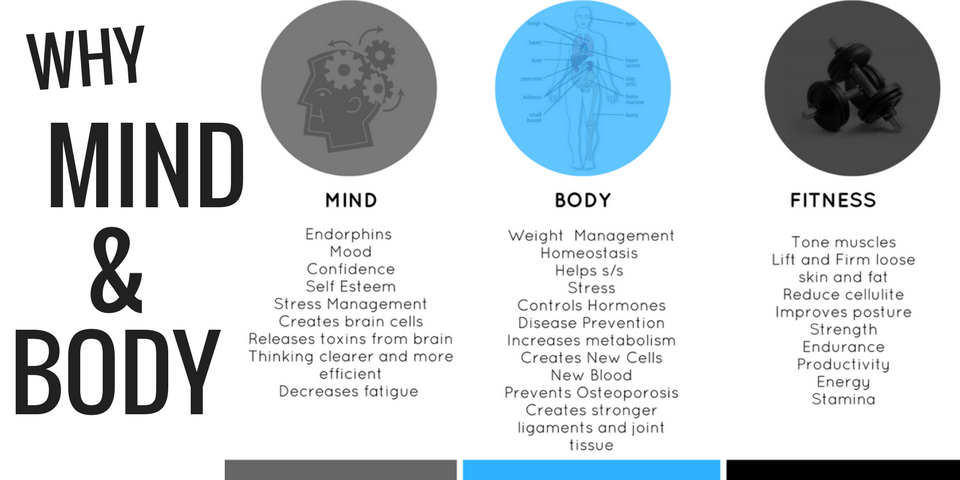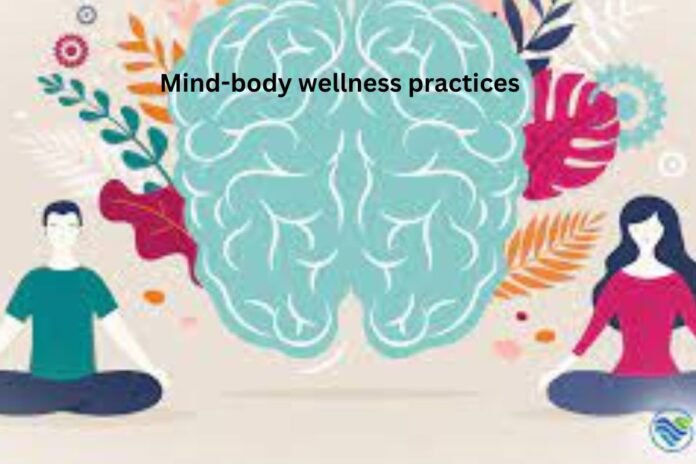

Incorporating mind-body practices to improve overall fitness levels is a crucial element of a holistic wellness approach. Imagine a world where your fitness regime wasn’t just about pushing your physical limits, but also nurturing your mental and emotional well-being. This thorough guide delves into the powerful synergy between mind and body, exploring how integrating mindfulness, meditation, and other techniques can lead to a more balanced and effective fitness routine. This article identifies the challenges common to fitness enthusiasts and explores how incorporating these practices can address them. We’ll explore various mind-body practices, their benefits, practical applications, and strategies to integrate them into your daily life. Finally, we will discuss how to implement these practices effectively for long-term achievement.
Understanding the Connection Between Mind and Body
The Interplay of Mental and Physical Well-being
Mind-body practices acknowledge the profound connection between mental and physical well-being. Stress, anxiety, and negative emotions can directly impact physical health, while physical discomfort can also affect mental state. This interconnectedness underscores the importance of holistic approaches to fitness, recognizing that true well-being arises from nurturing both facets of our being. Studies have shown a correlation between stress reduction and improved physical performance, demonstrating the crucial function of mental health in achieving optimal fitness. A 2018 study published in the Journal of Sports Sciences highlighted the positive impact of mindfulness meditation on reducing anxiety and improving athletic performance in athletes. By understanding this deep connection, you can create a more well-rounded fitness approach.
Recognizing the Challenges of Traditional Fitness Routines
Traditional fitness regimens, while effective for building muscle and improving cardiovascular health, often overlook the function of mental well-being. This can lead to burnout, injuries, and a lack of long-term motivation. Many individuals experience persistent stress from daily pressures, which can interfere with their workouts, nutrition plans, and overall training regimens.
The benefits of Mindful Movement
Related Post : The Importance of Flexibility Exercises in Injury Prevention Strategies
Yoga and Its Impact on Physical and Mental Health
Yoga is a powerful mind-body practice that combines physical postures (asanas), breathing techniques (pranayama), and meditation to cultivate a sense of balance and well-being. Yoga postures improve flexibility, strength, and balance, while pranayama techniques enhance breathing efficiency and reduce stress. The combination of physical and mental components creates a holistic approach to fitness. Numerous studies have demonstrated the positive effects of yoga on physical and mental health, particularly in reducing stress and improving flexibility. Consider a 2012 study in the Journal of Alternative and Complementary Medicine, which showed the efficacy of yoga in reducing chronic back pain. This study highlighted the physical benefits of yoga and its ability to treat existing conditions.
Meditation for Stress Reduction and Enhanced Focus
Meditation, a practice rooted in various spiritual traditions, involves training the mind to focus on a particular object, thought, or sensation. Through regular practice, meditation cultivates awareness, reduces stress responses, and improves focus. This practice can significantly improve athletic performance, by enhancing concentration and reaction time. A 2015 study published in the Journal of Consulting and Clinical Psychology, for instance, showed how meditation can decrease physiological responses to stress. These findings strongly suggest that regular meditation is a valuable tool to reduce stress and promote better performance.
Practical Strategies for Incorporating Mind-Body Practices
Creating a Dedicated Space for Practice
Establishing a dedicated space for your mind-body practice is crucial for creating a conducive environment. This space could be a corner of your home, a designated room, or even a quiet outdoor spot. The crucial element is to create a dedicated space where you can feel calm and focused during your practice. The dedicated space serves as a symbol of commitment and sets the tone for your personal practice. Creating a comfortable and welcoming atmosphere promotes mindfulness in your personal space, supporting your practice.
Crafting a Sustainable Routine
Developing a consistent routine is essential for achieving long-term benefits. Begin with short sessions, gradually increasing the duration and frequency of your practice. Incorporating a daily meditation session of 10-15 minutes or a 30-minute yoga routine can prove extremely beneficial. Consistency is key to witnessing substantial positive changes in your well-being.
Cultivating Self-Awareness
Mindfulness is more than just meditation; it’s about paying attention to your thoughts, feelings, and sensations without judgment. This process enhances self-awareness, allowing you to understand your body’s needs and respond effectively to challenges. Daily reflection on your physical and mental states can be invaluable and facilitate greater self-understanding.
Nutritional Considerations for Holistic Fitness
The function of Diet in Physical and Mental Performance
A healthy diet is a cornerstone of overall fitness. The types of foods you consume directly affect your energy levels, mood, and recovery. Prioritizing nutrient-rich foods, such as fruits, vegetables, whole grains, and lean proteins, fuels both physical activities and mental clarity. Avoid processed foods, sugary drinks, and excessive caffeine intake, as these can hinder your body’s overall well-being.
Hydration and Its Importance in Physical Performance
Staying well-hydrated is crucial for physical performance. Dehydration can significantly impact your energy levels, concentration, and overall workout experience. Maintaining adequate hydration throughout the day, particularly during and after exercise, is vital for optimal physical and cognitive function. This is particularly true during demanding activities that require prolonged exertion.
Sleep and Rest for Recovery and Growth
Adequate sleep is critical for muscle recovery and overall well-being. Aim for 7-9 hours of quality sleep each night. This allows your body to repair, rejuvenate, and prepare for the next day’s activities, including your fitness routine.
Integrating Mind-Body Practices into Your Daily Life
Mindful Movement During Daily Activities
Incorporate mindful movement into your daily routine, such as taking mindful steps during your commute or doing slow, mindful stretches throughout the workday. This fosters a heightened sense of body awareness and promotes physical and mental well-being.
Utilizing Mindful Breathing Throughout the Day
Practicing mindful breathing techniques throughout the day can help manage stress and improve focus. Engage in a few deep breaths during moments of stress or overwhelm. This can help you connect with your body and reduce tension in everyday moments.
Recognizing and Responding to Emotional Challenges with Self-Compassion
Practice self-compassion by acknowledging and addressing emotional challenges. This involves understanding and accepting your feelings without judgment and offering yourself support and understanding.
Additional Resources
Further Reading and Resources
Exploring various online resources such as articles, websites, and communities can be incredibly helpful. These resources offer various perspectives, insights, and actionable steps to achieve your objectives. Connect with like-minded individuals, take online classes, or seek out local practitioners who specialize in mind-body practices. Engaging with other mindful practitioners can significantly enhance your experience.
Conclusion of incorporating mind-body practices to enhance your physical fitness
Incorporating mind-body practices into your fitness routine can significantly enhance your overall well-being and athletic performance. By prioritizing stress reduction, improving flexibility, and fostering a deeper connection with your body, you can unlock a new level of physical and mental resilience. Consistent practice, combined with a balanced lifestyle, will lead to sustained improvements in fitness levels. Ready to experience the transformative power of mind-body practices? Start your journey today by exploring the resources available at [link to resource].